Poor Dental Hygiene Linked to Shrinkage of the Hippocampus, the Brain’s Memory Center
Last updated on
Every morning, millions of people perform a ritual so routine they barely think about it: brushing their teeth. What if that simple two-minute task was protecting something far more precious than your smile? Deep in a research facility in northern Japan, scientists have been watching brains shrink and memories fade, all while tracking something most people would never connect to cognitive decline.
For four years, researchers followed 172 people, taking detailed brain scans and meticulously examining their mouths. What they discovered challenges everything we thought we knew about the relationship between oral health and brain aging. The findings suggest that what’s happening in your mouth might be directly aging your brain, but not in the way anyone expected.
The results were so counterintuitive that they forced scientists to completely rethink the advice they give about dental care. Sometimes, it turns out, having more teeth might be worse for your brain than having fewer teeth. The devil, as they say, is in the details – and those details could revolutionize how we approach both dental care and dementia prevention.
Your Mouth Might Be Aging Your Brain Faster Than You Think
The connection between oral health and brain function isn’t entirely new to science, but until recently, researchers assumed the relationship was straightforward: better teeth meant better brain health. This assumption seemed logical – maintaining the ability to chew properly should support nutrition and overall health, which in turn should protect cognitive function.
However, the Japanese study published in the prestigious journal Neurology revealed a relationship so complex that it turned conventional wisdom on its head. The research team discovered that the number of teeth a person retains and the health of their gums interact in ways that can either protect or dramatically accelerate brain aging.
What makes this research particularly significant is its focus on the hippocampus, often called the brain’s memory center. This seahorse-shaped structure deep within the brain plays a crucial role in forming new memories and is among the first areas to show damage in Alzheimer’s disease. When the hippocampus shrinks, it serves as an early warning sign that cognitive decline may be on the horizon.
The 4-Year Study That Tracked Brains and Mouths
The Ohasama Study represents one of the most comprehensive investigations into the mouth-brain connection ever conducted. Researchers recruited 172 community-dwelling adults aged 55 and older from rural Japan, following them for four years with regular brain scans and detailed dental examinations.
Using advanced MRI technology, scientists measured tiny changes in hippocampal volume over time, tracking brain aging with remarkable precision. Simultaneously, specially trained dentists conducted thorough oral examinations, counting teeth and measuring the depth of periodontal pockets – the spaces between teeth and gums that deepen when gum disease progresses.
The study’s longitudinal design was crucial for establishing causation rather than mere correlation. By tracking the same individuals over time, researchers could observe how changes in oral health preceded changes in brain structure, providing compelling evidence for a direct relationship.
More Teeth Isn’t Always Better
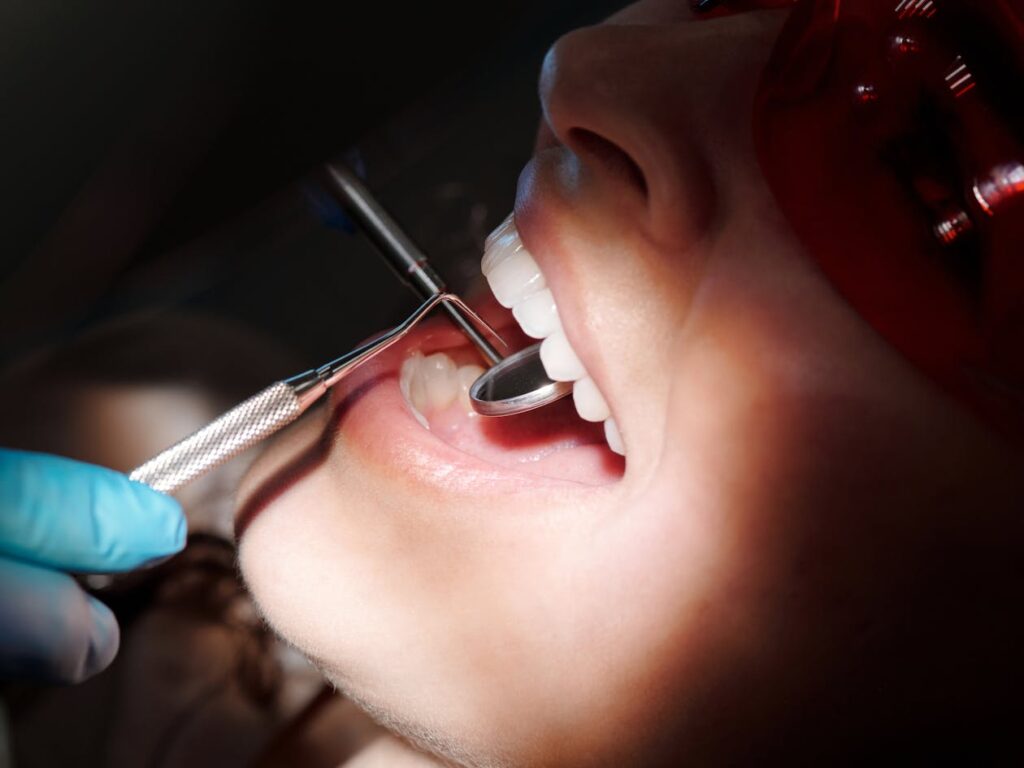
The study’s most shocking finding emerged when researchers analyzed the interaction between tooth count and gum disease severity. Rather than finding a simple “more teeth equals better brain health” relationship, they discovered two completely different scenarios with opposite outcomes.
“In patients with mild periodontitis, the left hippocampus atrophied as the NTP decreased, while in patients with severe periodontitis, atrophy of the left hippocampus progressed as the NTP increased,” the researchers reported.
This discovery explains why previous studies had failed to find consistent relationships between oral health and brain aging. Scientists had been looking for a linear relationship when the reality was far more complex, involving an interaction between multiple factors that could push brain aging in either direction.
When Fewer Teeth Mean Faster Brain Aging
For people with mild gum disease, the traditional wisdom held: losing teeth accelerated brain aging. The mechanism appears to involve the loss of chewing activity, which normally provides crucial stimulation to brain regions involved in memory and cognition.
Chewing activates complex neural pathways that connect jaw muscles to memory centers in the brain. When people lose teeth and chewing becomes less efficient, this stimulation decreases, potentially contributing to hippocampal atrophy. The “use it or lose it” principle that applies to many aspects of brain health extends to the simple act of chewing food.
Research in animals has confirmed this connection, showing that reduced chewing activity leads to measurable changes in hippocampal structure and function. The mechanical act of chewing appears to promote blood flow to the brain and may even stimulate the production of proteins important for memory formation.
When More Teeth Become a Brain Health Liability
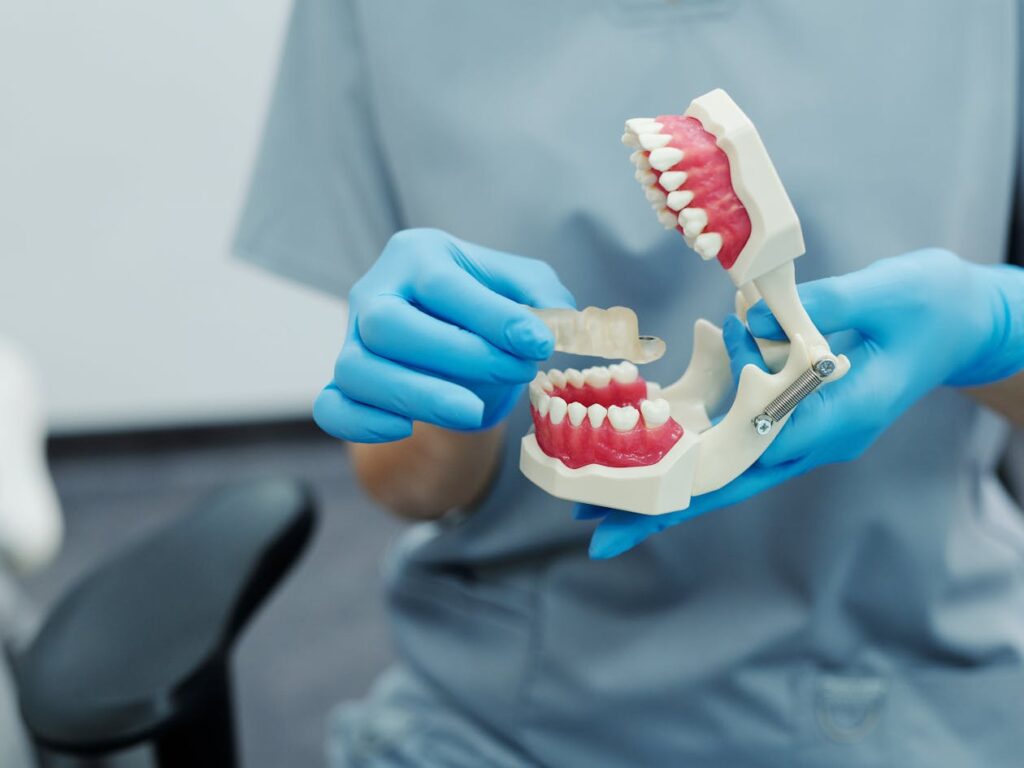
The study’s most disturbing finding involved people with severe gum disease, where having more teeth accelerated brain aging. In these cases, each additional tooth became a potential source of chronic inflammation and bacterial invasion that could damage the brain.
Severe periodontitis creates deep pockets around teeth that harbor dangerous bacteria, including Porphyromonas gingivalis, which researchers have found in the brains of Alzheimer’s patients. These bacteria can enter the bloodstream through routine activities like brushing teeth or chewing, potentially traveling to the brain and triggering inflammatory responses that damage neural tissue.
The researchers quantified this effect with startling precision: “the increase in the rate of atrophy of the left hippocampus due to 1 less tooth at the low-level mean PD was equivalent to approximately 0.9 years of age,” while one additional tooth in the presence of severe gum disease accelerated brain aging by approximately 1.3 years.
The Science Behind Your Mouth-Brain Highway
Understanding how oral bacteria reach the brain requires appreciating the intimate connection between oral health and systemic inflammation. When gum disease progresses, it creates pathways for bacteria to enter the bloodstream, where they can travel throughout the body, including to the brain.
Recent research has identified specific mechanisms by which oral bacteria contribute to Alzheimer’s disease. Porphyromonas gingivalis produces toxic enzymes called gingipains that can destroy brain tissue and may promote the formation of amyloid plaques characteristic of Alzheimer’s disease.
Even routine activities in people with gum disease can trigger bacteremia – the presence of bacteria in the blood. Brushing teeth, flossing, or even chewing food can introduce oral bacteria into the circulation, potentially exposing the brain to inflammatory compounds that accelerate aging.
Numbers That Put This in Perspective
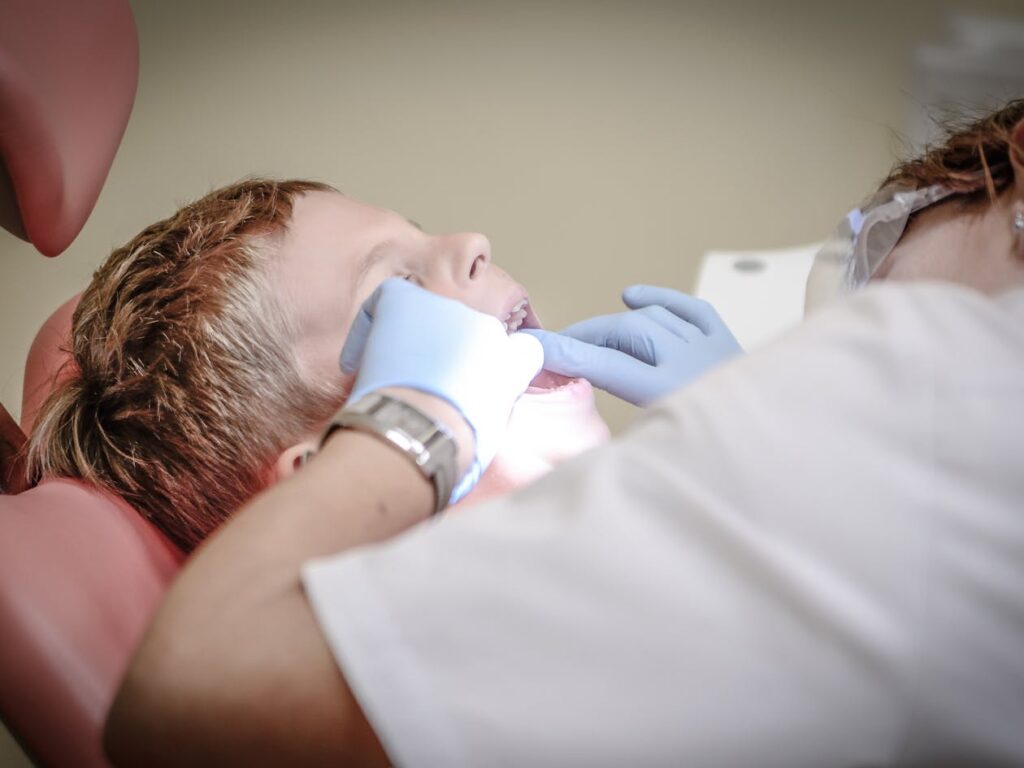
The magnitude of the mouth-brain connection revealed by this study surpassed researchers’ expectations. The effect of the tooth-gum interaction on brain aging was stronger than the normal effects of chronological aging, leading the study authors to conclude: “This finding indicates that periodontitis may have a greater association with left hippocampal atrophy than the association exhibited by age.”
To put this in perspective, the brain aging acceleration from dental problems exceeded what researchers typically see from other known risk factors for cognitive decline. The left hippocampus, which showed the most dramatic changes, is particularly important for forming new memories and is often the first brain region affected in Alzheimer’s disease.
These findings suggest that addressing severe gum disease might be one of the most effective interventions for slowing brain aging, potentially more impactful than many other lifestyle modifications commonly recommended for cognitive health.
What This Means for Your Dental Care Strategy
The research findings fundamentally challenge the conventional approach to dental care, which has traditionally focused on retaining teeth at all costs. The study suggests that in cases of severe periodontitis, extraction and replacement with prosthetics might be better for brain health than attempting to save infected teeth.
This doesn’t mean people should rush to have healthy teeth removed, but rather that the equation for dental decision-making needs to include brain health considerations. For teeth with advanced gum disease that cannot be effectively treated, extraction followed by appropriate replacement might protect cognitive function better than retention.
The key insight is that gum health matters more than simple tooth count. A person with fewer teeth but healthy gums might have better brain aging prospects than someone with more teeth affected by severe periodontitis.
The Treatment Dilemma: Save or Extract?
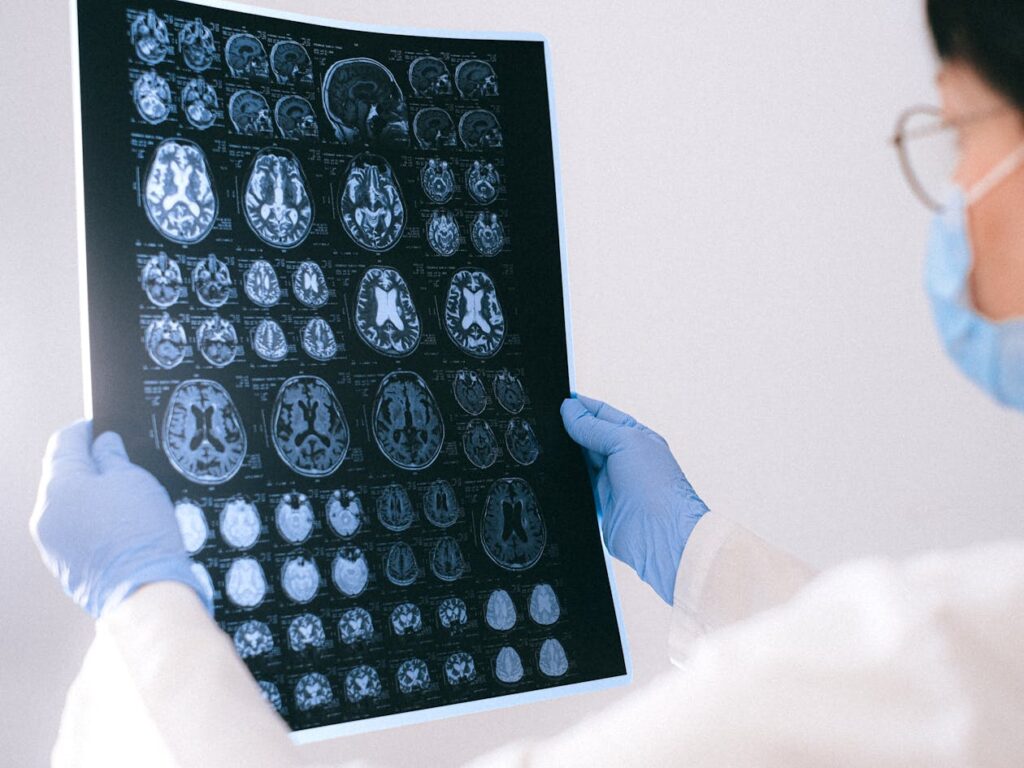
This research creates new challenges for dental professionals who must now consider cognitive implications when making treatment recommendations. Traditional dental education emphasized saving teeth whenever possible, but these findings suggest that severely infected teeth might pose risks that outweigh their benefits.
Working with patients to develop individualized treatment plans becomes crucial, weighing factors like the severity of periodontal disease, the patient’s ability to maintain oral hygiene, and their overall health status. In some cases, aggressive periodontal therapy might successfully control infection, while in others, extraction and replacement with implants or dentures might be the more brain-healthy choice.
The research also highlights the importance of regular professional dental care for preventing gum disease from progressing to the point where difficult treatment decisions become necessary.
What You Can Do Today
While waiting for healthcare systems to adapt to these findings, individuals can take immediate steps to protect both their oral and brain health. Regular dental checkups become even more critical, with particular attention to gum health rather than just cavity prevention.
Early intervention for gum disease becomes a brain health priority. Signs like bleeding gums, tooth mobility, or persistent bad breath should prompt immediate professional evaluation. The goal is to prevent mild periodontitis from progressing to the severe stage, where teeth become brain health liability.
For people already dealing with advanced gum disease, honest discussions with dental professionals about the cognitive implications of treatment options become essential. Sometimes, the most difficult decision – tooth extraction – might be the most brain-protective choice.
The Future of Mouth-Brain Medicine
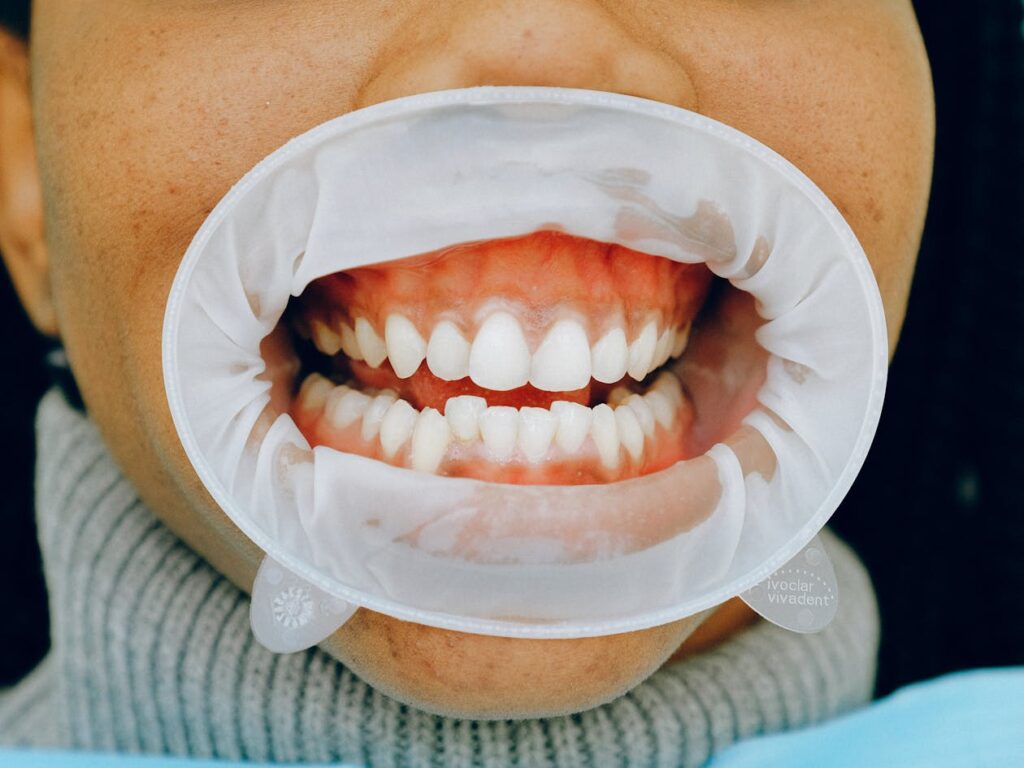
This research opens new avenues for understanding and preventing cognitive decline. Future studies will likely explore how quickly dental interventions can slow brain aging and whether treating gum disease can reverse some hippocampal atrophy.
The findings also suggest that oral health biomarkers might eventually serve as early warning signs for cognitive decline, potentially allowing intervention before brain damage becomes irreversible. As our understanding of the mouth-brain connection deepens, dental professionals may become key players in the fight against Alzheimer’s disease.
What started as a study about teeth and gums has revealed fundamental insights about brain aging that could change how we approach cognitive health for generations to come.
Some of the links I post on this site are affiliate links. If you go through them to make a purchase, I will earn a small commission (at no additional cost to you). However, note that I’m recommending these products because of their quality and that I have good experience using them, not because of the commission to be made.
































 JOIN OVER
JOIN OVER
Comments